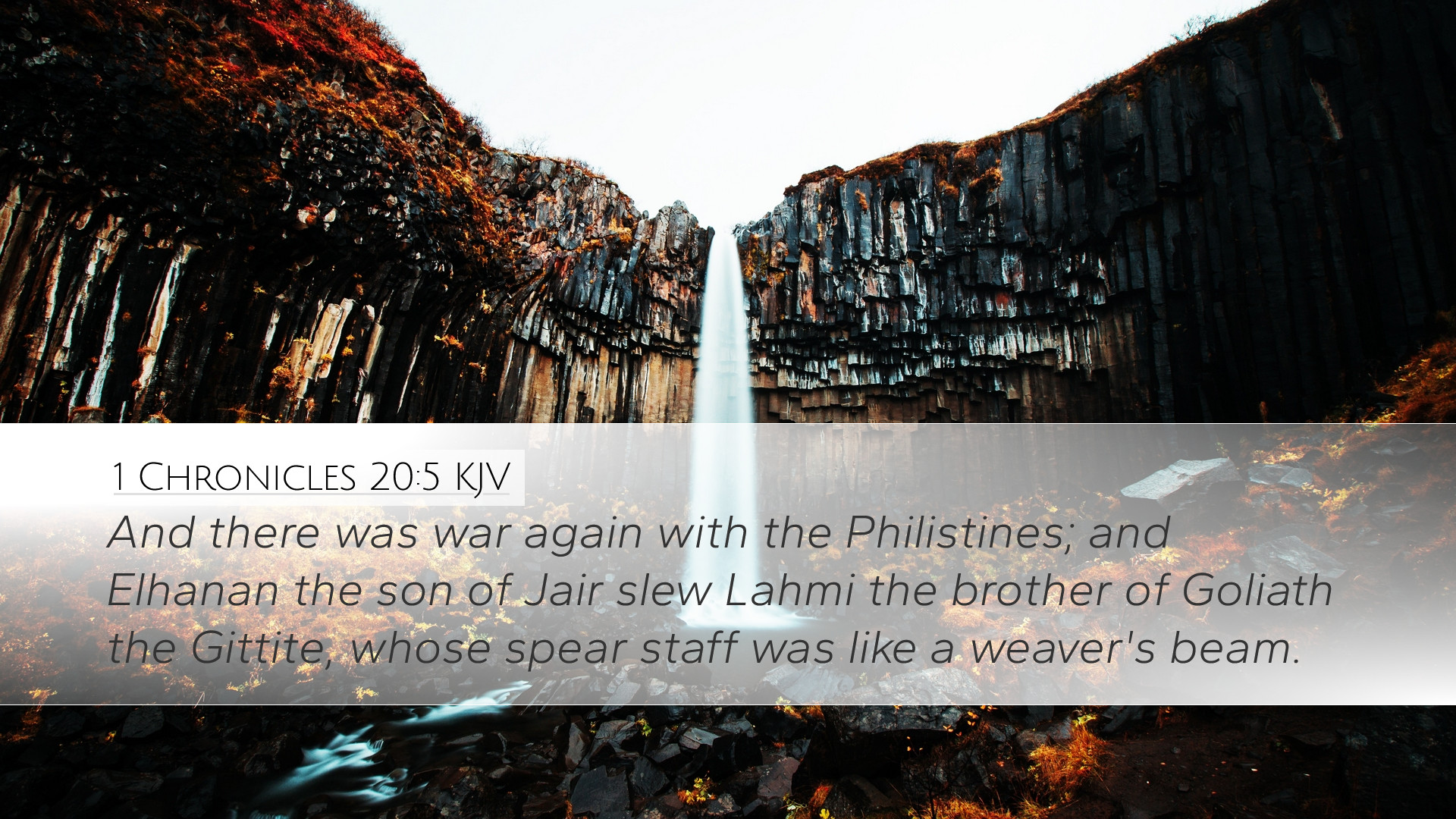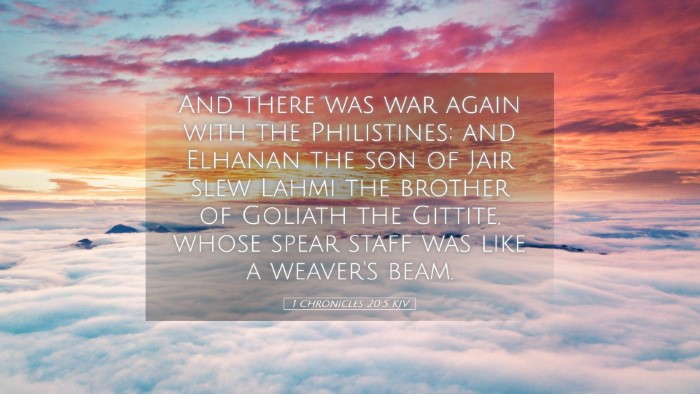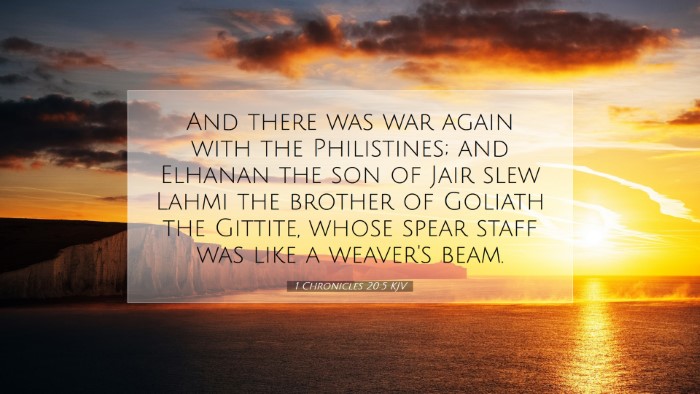Commentary on 1 Chronicles 20:5
Verse Context: 1 Chronicles 20:5 states, "And there was war again with the Philistines; and Elhanan the son of Jair slew Lahmi the brother of Goliath, whose spear weighed three hundred shekels of brass." This verse recounts the continuing battles between the Israelites and the Philistines, emphasizing the legacy of David’s victories and the ongoing conflict against Israel’s enemies.
1. Historical Background
Historical context is crucial to understand the significance of this verse. The Philistines were a persistent adversary of Israel throughout their history, representing a fierce military and cultural challenge. This passage marks another instance of conflict that serves to highlight God's continuing involvement in the affairs of Israel, as well as the courage and prowess of Israel’s warriors.
2. Key Themes
- Divine Sovereignty: The ongoing battles illustrate God's sovereignty over Israel. Each victory reinforces the notion that the victories belong to the Lord rather than merely to the prowess of human warriors.
- The Legacy of David: The reference to Goliath connects the past successes of David with the current struggles. David’s triumphs set a precedent for future confrontations with their enemies.
- Courage in Battle: Elhanan’s act of killing Lahmi demonstrates the courage and valor expected of leaders and soldiers in Israel. This courage is portrayed as a divine gift that brings victory.
3. Insights from Commentators
3.1 Matthew Henry's Perspective
Matthew Henry highlights how this verse not only recounts a battle victory but also serves to remind the readers of God's faithful deliverance of Israel. He points out the significance of remembering the names of those who fought bravely, as such remembrance encourages others to maintain their faith and commitment to God in the face of adversities. Henry emphasizes that the mention of Lahmi, Goliath's brother, draws a line from the past victories of David to the ongoing struggle, reminding the Israelite community of their heritage of faith and valor.
3.2 Albert Barnes' Commentary
Albert Barnes provides a detailed exegesis of the text, remarking on the historical importance of the Philistine wars within the Israelite narrative. He suggests that the ongoing conflict serves as a backdrop to God’s dealings with His people. Barnes interprets Elhanan’s slaying of Lahmi as a significant moment that not only illustrates God’s continuous help but also affirms the notion that God raises leaders among His people who will continue the work of deliverance. He also notes the importance of the spear's weight, suggesting it as a symbolic representation of the might and the stature of their enemies.
3.3 Adam Clarke's Analysis
Adam Clarke offers theological reflections on the nature of God’s intervention in battles. He underscores that every victory is attributed to Divine Providence and serves a broader theological purpose. Clarke proposes that the chronicler’s mention of Elhanan is to instill confidence in the readers, assuring them that God remains actively involved in their struggles. He also analyzes the familial connections in the text, suggesting that these relationships were foundational in understanding communal identity and continuity in Israel's history.
4. Theological Implications
The events in 1 Chronicles 20:5 reveal not just a historical account but carry profound theological implications for understanding God’s engagement with His people. The mention of each warrior who succeeded in battle reinforces the calling upon believers today to be courageous and steadfast in their faith, actively fighting against the spiritual adversaries of our time.
5. Applications for Today
- Faith in Adversity: Just as the Israelites faced wars, Christians today face spiritual and moral battles. This verse encourages believers to remember God’s past deliverance while facing present challenges.
- Legacy of Faith: Just as the slaying of Goliath became part of Israel's history, believers are called to build a legacy of faith that inspires future generations to trust God.
- Call to Leadership: The recognition of brave acts leads to a challenge for contemporary church leaders to inspire and lead their churches boldly, reminiscent of Elhanan's faith and actions.
Conclusion
In sum, 1 Chronicles 20:5 serves as more than a historical note; it encapsulates themes of divine assistance, the legacy of faith, and the encouragement to face contemporary battles with courage. The reflections from Matthew Henry, Albert Barnes, and Adam Clarke enrich our understanding of this passage and provide a meaningful framework for pastors, students, theologians, and scholars alike to explore the depth of God's involvement in the life of His people.


